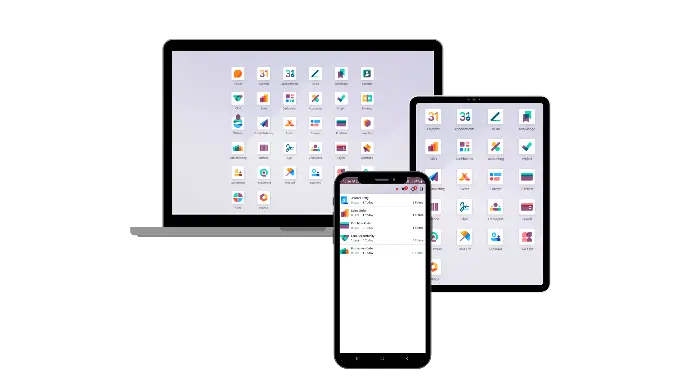In this digital era, having an integrated and easy-to-use business solution is the main key to success for small businesses. Odoo is presented as an ERP (Enterprise Resource Planning) platform that offers various benefits to help you manage various aspects of your business efficiently and effectively.
This blog will take an in-depth look at Odoo and how this solution can help small businesses like yours grow. We'll start by explaining what Odoo is, then discuss its advantages compared to other ERP solutions, and finally, a complete guide to implementing Odoo for small businesses.

What is Odoo?
Odoo is an all-in-one business management software that offers various modules to support various aspects of business, such as sales, purchasing, accounting, inventory, customer relationship management (CRM), and much more. Odoo is known as an easy-to-use and customizable cloud-based ERP, allowing users to turn their business operations digital easily without requiring complex technical knowledge.
Advantages of Odoo for Small Businesses
Compared to other ERP solutions, Odoo has several key advantages that make it an ideal choice for small businesses, including:

Affordable prices
Odoo offers a variety of affordable pricing plans, including a free plan to get started. This allows small businesses to get the benefits of ERP without having to incur huge costs.

Complete Features
Odoo provides a comprehensive range of modules to meet various business needs, from sales and accounting to CRM and project management.

Ease of Use
Odoo is designed with an intuitive and easy-to-use interface, making it easy for your employees to learn quickly.

Cloud Availability
Odoo is available as a cloud solution, so you don't have to bother with server installation and maintenance.

Scalability
Odoo can be customized and scaled to suit your business needs, so you can continue to use it as your business grows

Ease of Implementation
Odoo is designed to be implemented quickly and easily. Online guides are available and Odoo partners are ready to help MSMEs in the process of implementing and customizing Odoo according to business needs.
Complete Guide to Implementing Odoo for Small Businesses
Here is a complete guide to implementing Odoo in your small business:

Preparation
Before starting Odoo implementation, it is important to prepare several things, such as:
- Assess Business Needs: Conduct a thorough analysis of your business needs and goals. Identify the areas you want to improve with Odoo.
- Determining Budget: Set a realistic budget for Odoo implementation.
- Selecting an Odoo Partner (Optional): Consider working with an Odoo Partner for expert guidance and support throughout the implementation process

Planning
Once preparations are complete, the next step is to create a detailed implementation plan, including:
- Specifying Required Odoo Modules: Choose the Odoo module that suits your business needs.
- Creating a Timeline: Set a realistic timeline for Odoo implementation.
- Appoint an Implementation Team: Form a team consisting of representatives from various departments to help with Odoo implementation.
- Developing a Communication Strategy: Create a communications strategy to inform employees about upcoming changes.

Implementation
Following are the Odoo implementation steps:
- Installing and Configuring Odoo: Install and configure Odoo according to your business needs.
- Migrating Data: Migrate data from your legacy system to Odoo.
- Customizing Odoo: Customize Odoo to suit your business workflow.
- Training Users: Provide training to your employees on how to use Odoo.

Launch and Support
Once the implementation is complete, you need to roll out Odoo company-wide and provide ongoing support to your employees:
- Launching Odoo: Switching from legacy system to Odoo.
- Give support: Provide ongoing support to your employees and resolve issues as they arise.
Conclusion
Odoo is an ideal ERP solution for small businesses looking to increase the efficiency and effectiveness of their business. By following the implementation guide above, you can ensure that Odoo is implemented successfully in your business and provides maximum benefits to your business.